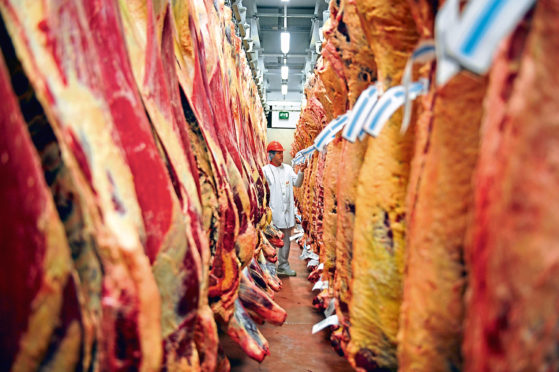The latest analysis of the meat market’s destabilisation in the wake of Covid-19 restrictions indicates the impact is far from over with tumultuous times ahead for producers and processors.
A review of trends by Quality Meat Scotland (QMS) refers to both the operational difficulties being experienced by abattoirs and processing plants and the profoundly different demand for meat as a result of the closure of the hospitality and schools sectors.
Pointing to last week’s collapse in farm gate prices for prime sheep – followed by some upward movement this week – and a slide in prime cattle prices in the past few days, the promotional body’s economics guru, Stuart Ashworth, warns that while export markets remain open, restrictions on people movements and the hospitality sector have severely disrupted demand.
“Consequently, for lamb, stocks which were being built ahead of Easter and Ramadan are not moving, and many chills are full or close to full,” he warns.
“Until these stocks are moved, demand for animals will remain low and the market price will adjust accordingly. With restrictions on family gatherings over the Easter period, demand for roasts, lamb or beef, may be badly affected.”
On the upside he quotes market researchers who suggest more than 500 million extra meals a week will need to be provided by UK homes, and while there is greater demand from high street food shops, multiple retailers, convenience stores or high street butchers, it is not for the same expensive cuts as those consumed in restaurants.
Problems being experienced by meat wholesalers include staffing levels down an estimated 15-20% because of employees self-isolating.
This, and two-metre distancing is slowing down the speed of lines which may have a knock-on impact in reducing demand for animals.
However he concludes the initial movement in prices may have been an over-correction.
